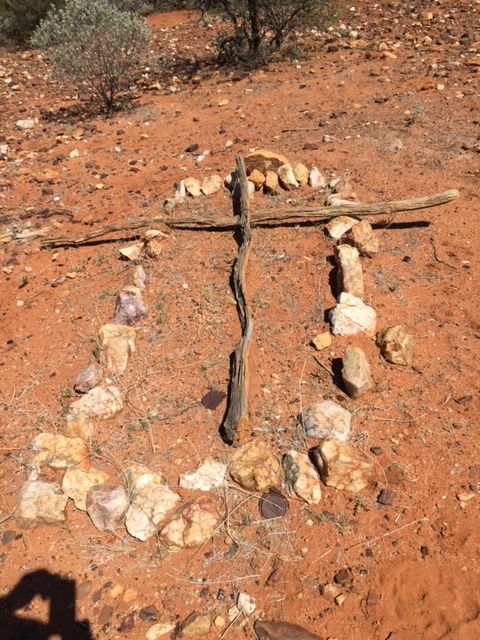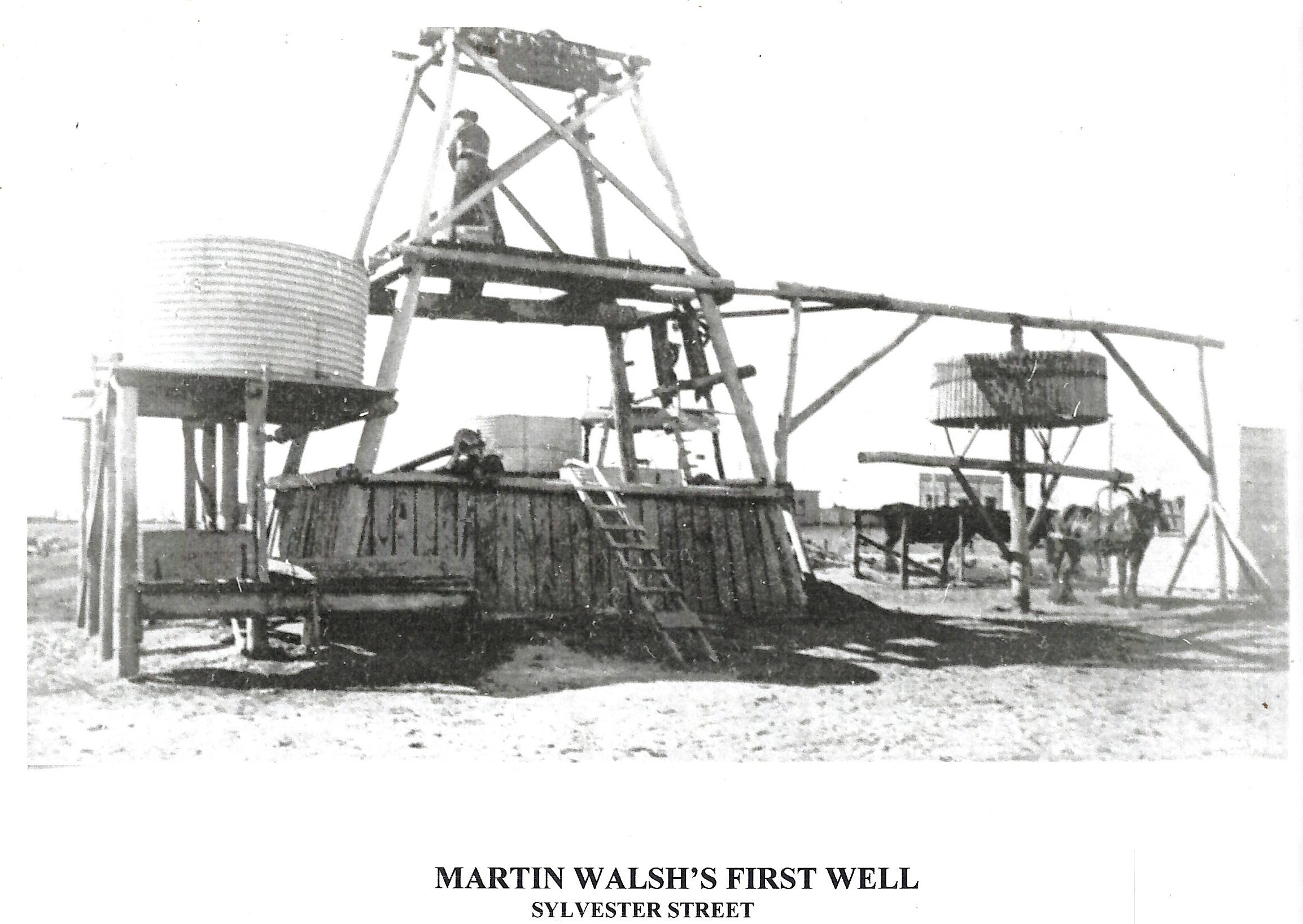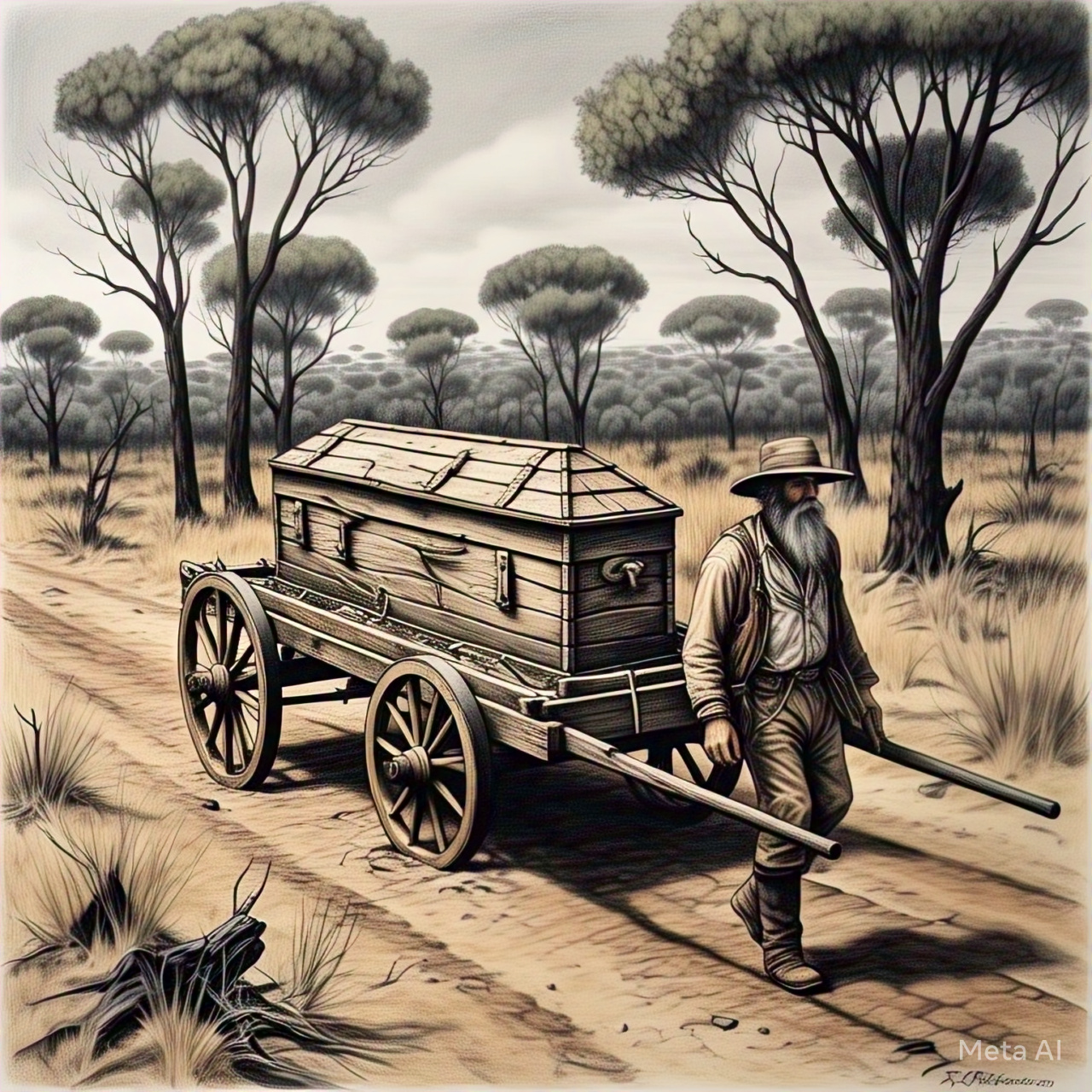The Spirit of the Fields
by Suter Abis
On a stifling summer afternoon in 1910, a mournful procession crept down Hack Street in Sandstone, a small outpost clinging to the edge of the Western Australian scrub. It was a pitiful sight: a spring cart so dilapidated its wheels—lashed together with chaff bags and fencing wire—threatened to collapse at every turn. Pulling it was a horse so gaunt and weary it seemed a marvel he could stand, let alone haul the load. His harness was a patchwork of greenhide and rope, save for a surprisingly sturdy collar, the last remnant of better days.
In the cart sat a woman, about thirty-five, her face etched with exhaustion and resolve. Beside her, perched on a wooden box, she cradled a child of one year, while two others—a boy of seven and a girl of four—huddled on threadbare rugs in the back. Across from them lay a bundle, tightly rolled in a blanket: her husband. He had drawn his last breath that morning, six miles out from Sandstone. Their only sustenance was half a tin of condensed milk, the dregs of charity they’d received days earlier at Maninga Marley.
The woman eased the cart to a stop on the northern fringe of town, where the scrub swallowed the road. She tied the horse to a gnarled tree, its leaves as sparse as their provisions, and left the two older children in the cart’s scant shade. With the youngest in her arms, she trudged toward the police station, her steps heavy with grief and desperation. There, she poured out her story—a tale of ten months adrift, a family unmoored from the Eastern States, chasing a fragile hope.
Her husband had been frail when they set out, too sick to work, his lungs craving the salt air and promise of fish along the western coast. She had shouldered the burden alone, scrounging jobs—washing, scrubbing, odd tasks at hotels and boarding houses—while he minded the children. Her earnings kept them moving, town to town, though rarely enough to spare a coin for horse feed. The animal survived on whatever it could forage, its ribs sharpening with every mile. At night, they camped by the roadside; she’d hobble the horse and hunt for him at dawn, praying he hadn’t wandered too far. Progress was agonizingly slow—sometimes just a few miles a day.
[Continue Reading…]










